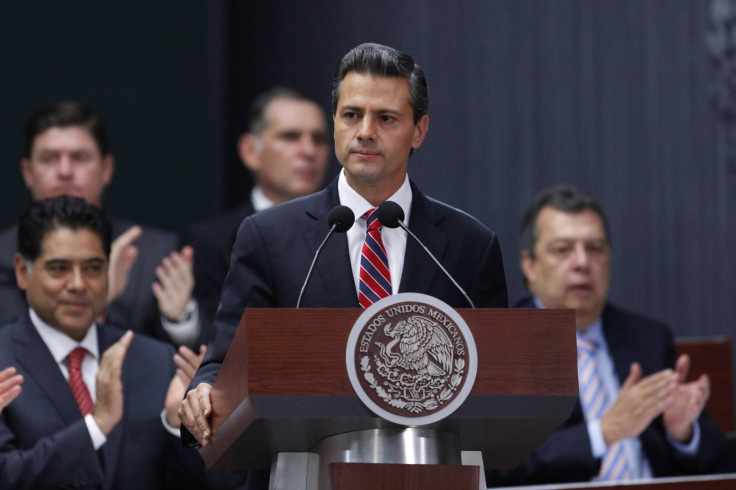No Sugary Drinks Please: Mexican Congress Passes Fiscal Reform, Including Controversial 'Soda Tax'

The lower house of Mexico's Congress passed a fiscal reform package that had been proposed by President Enrique Peña Nieto in September. The plan, passed on Thursday, includes a controversial “soda tax,” which will increase the price of sugary drinks -- a measure taken to fight the current obesity epidemic in Mexico.
Congress had until Sunday to decide on reforms that had generated much debate within the government, particularly within the opposition. The opposition right-of-center Partido Acción Nacional (National Action Party) opposed the reform program, but it was outvoted by the ruling left-of-center Partido Revolucionario Institucional (Institutional Revolutionary Party), and the leftist Partido de la Revolución Democrática (Party of the Democratic Revolution).
Still, to appease the concerns of opponents and conservatives, the bill was designed in part to raise the top income tax rate, on a sliding scale of 35 percent, from 30 percent.
Specifically, the maximum income tax rate will rise to 35 percent for people earning in excess of 3 million pesos ($235,000); to 34 percent for those making more than 1 million pesos; to 32 percent for those bringing in more than 750,000 pesos; and to 31 percent for those making more than 500,000 pesos annually. At present, the top income tax rate is 30 percent.
Lawmakers also rolled back plans to impose a sales tax on rents, mortgages, property sales and school fees. Also, the value-added-tax (VAT), which varied in different states, will now be unified across the country, at a 16 percent, and it will be extended to certain services that were not taxed in the past, like public transportation.
One of the key aspects of the reform package is the fiscal incorporation regime -- that is, a plan to include “informal employment” in the tax scheme. The plan is based on the idea that those workers who make up to two million pesos annually in “unregulated” jobs should start paying taxes. About 60 percent of Mexicans work in the “informal economy,” according to Instituto Nacional de Estadística y Geografía (INEGI), the country's statistics office. Reuters noted that most of Mexico’s poor live and work in a “shadow economy” that accounts for one-third of GDP and contributes little to the national tax base, creating a large tax burden on middle-income Mexicans.
One of most controversial parts of the reform, however, is the so-called “food and drink” tax -- which includes the 1 peso (8 cent) surcharge on sugary drinks. The measure aims to reduce the consumption of soft drinks as a way to cut down on obesity -- indeed, the United Nations recently released a report that named Mexico as the country with the highest rate of overweight people in the world, with a stunning 32.8 percent of its population considered overweight, a full percentage point more than the U.S., which traditionally tops the list.
The proposal received a lot of backlash from the opposition, retailers and multinational beverage manufacturers. Many pointed to New York City Mayor Michael Bloomberg’s failed attempts at reducing soda consumption, and they splattered the country with signs that read “No al impuesto Bloomberg” (No to the Bloomberg tax). “[Bloomberg] can be crazy, but he cannot come here and impose his craziness on us,” said union leader Cuauhtémoc Rivera.
Meanwhile, President Peña Nieto predicts that with the reform, the government’s tax revenues for 2014 will make up 1.4 percent of the GDP, before climbing to 3 percent of GDP by 2018, according to Mexican newspaper El Universal.
The reform package remains subject to a vote by the Senate in November.
© Copyright IBTimes 2024. All rights reserved.





















